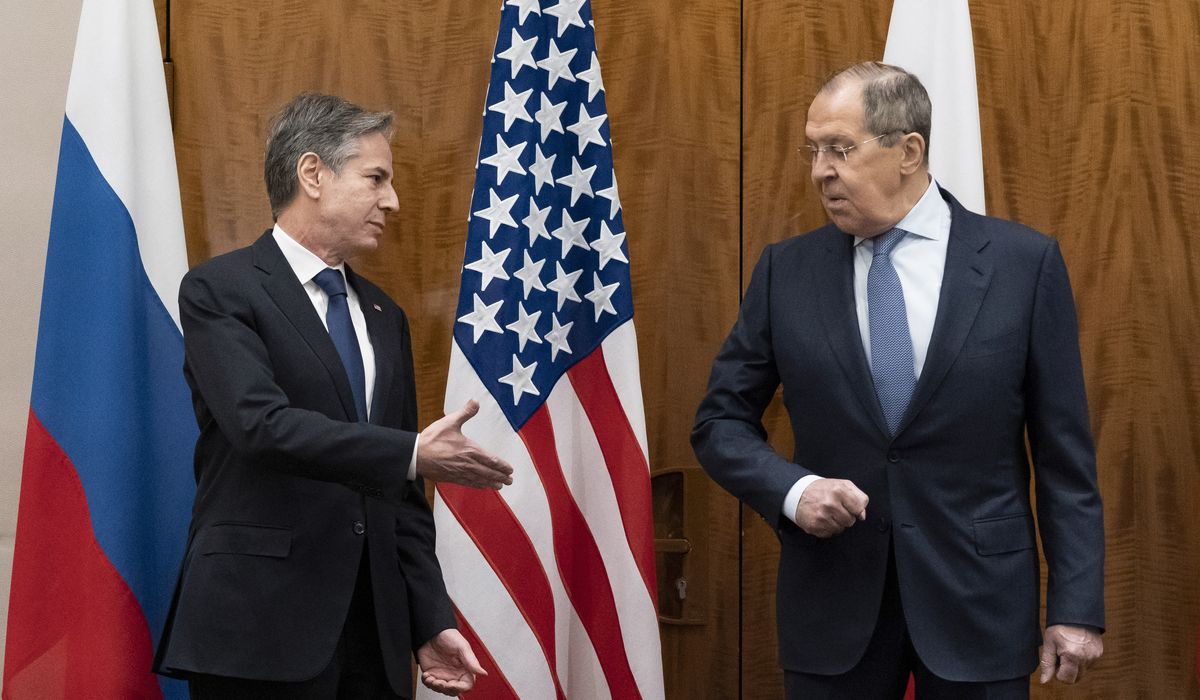

There were no breakthroughs, but the top diplomats from the U.S. and Russia agreed at least to keep talking Friday amid fears that Moscow is preparing an invasion of its neighbor Ukraine.
Secretary of State Antony Blinken and Russian Foreign Minister Sergey Lavrov met for 90 minutes in Geneva Friday, showing no apparent give on either side but seeking to lower the temperature after weeks of high-stakes threats and counter-threats.
Mr. Blinken for the first time acknowledged to reporters that the Biden administration will meet at least one Kremlin demand — replying in writing in the coming days to a Russian proposal last month to roll back NATO’s presence in eastern Europe and to rule out forever NATO membership for Ukraine and fellow former Soviet states such as Georgia.
The U.S. and its allies have rejected many of Russian President Vladimir Putin’s demands as non-starters, but had not committed to answering the Kremlin’s call for a broader debate over European security and Russia’s so-called “red lines” regarding security along its long European border with the West.
Despite massing some 100,000 troops on Ukraine’s border in recent months, Russia denies plans to invade. Friday’s talks, which followed Mr. Blinken’s visits to Kyiv and to Berlin for discussions with allies earlier in the week, appeared to signal that diplomacy was being given a little more chance to head off a shooting war.
“We didn’t expect any major breakthroughs to happen today, but I believe we are now on a clearer path to understanding each other’s positions,” Mr. Blinken said.
Mr. Blinken’s task was complicated by President Biden’s press conference earlier in the week in which he predicted Mr. Putin was already intent on military action, that a “minor incursion” into Ukraine might meet with a lesser response, and that there were internal divisions within NATO on how to respond to Russian aggression.
U.S. and NATO officials quickly moved to clarify those remarks, saying Russia would face unprecedented economic sanctions for any military move against Kyiv.
The secretary of state added Thursday that the U.S. would consider another face-to-face meeting between Mr. Biden and Mr. Putin if it would be “productive.”
Russian analysts say the crisis has already yielded dividends for the Kremlin by focusing U.S. and global attention on Russia’s longstanding grievances in Europe.
Mr. Lavrov called the Friday meeting “constructive and useful,” and said Russia would study carefully the U.S. and NATO responses to its demands in the coming days.
“I can’t say whether we are on the right track or not,” he told reporters. “We will understand that when we receive the U.S. written response to all of our proposals.”
• This article was based in part on wire service reports.
